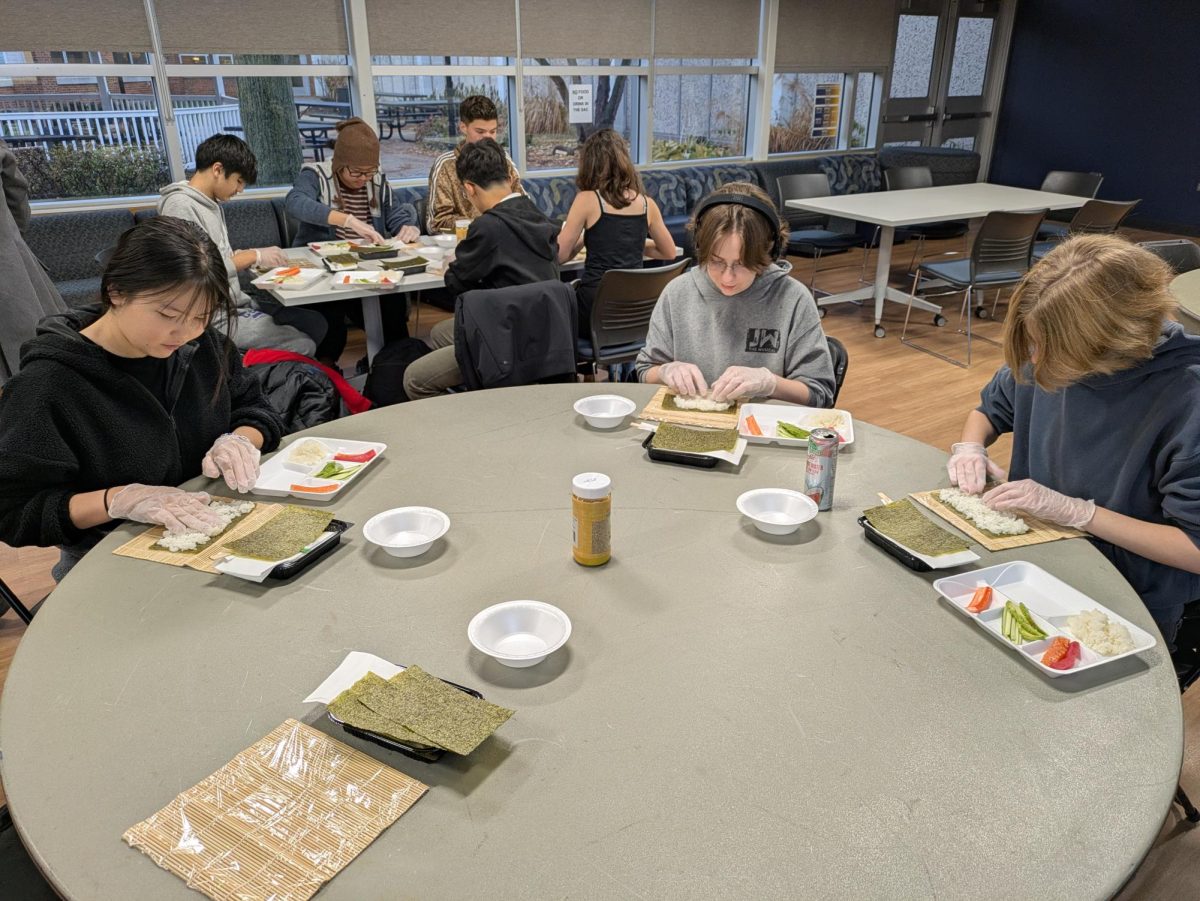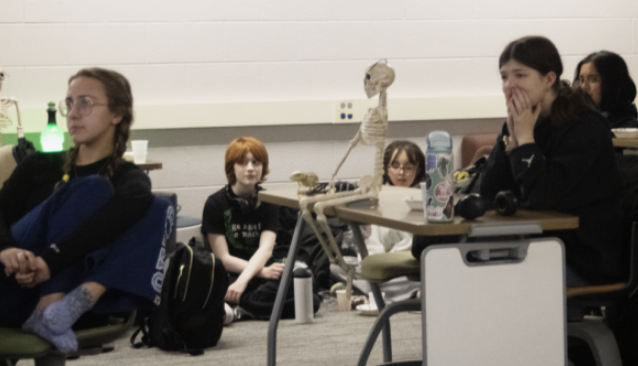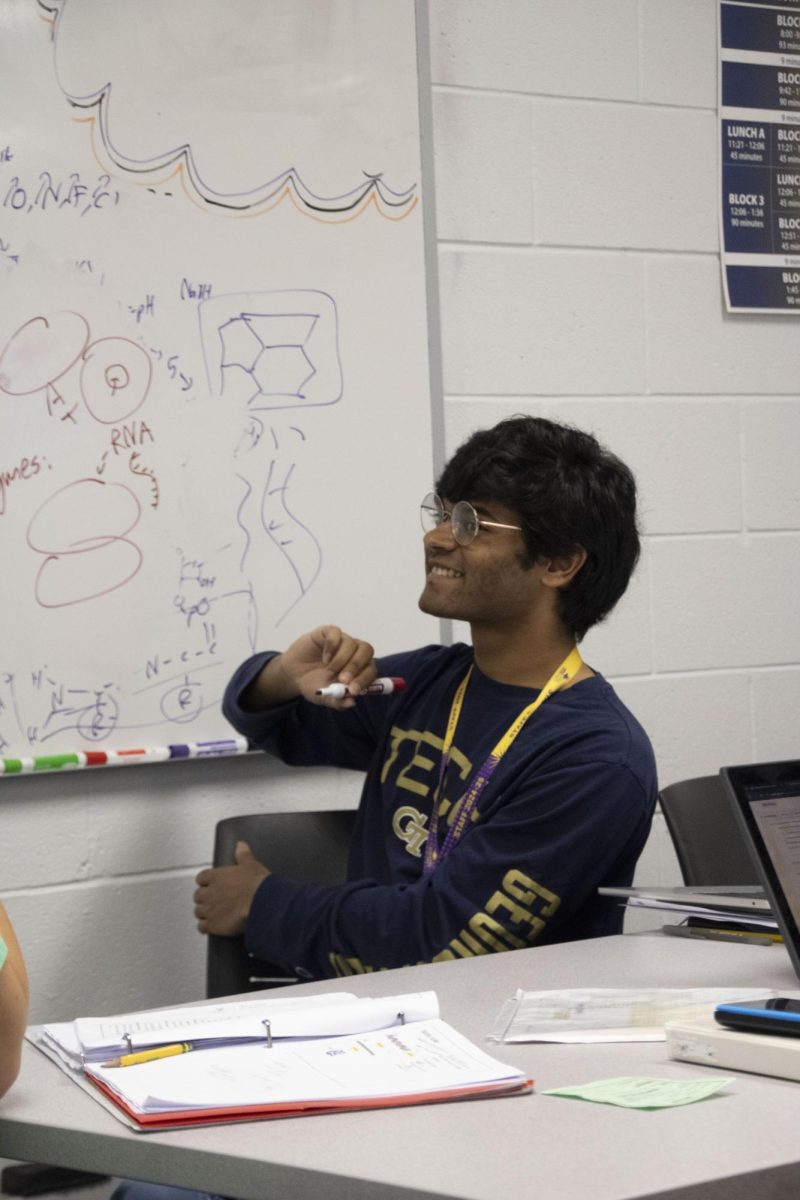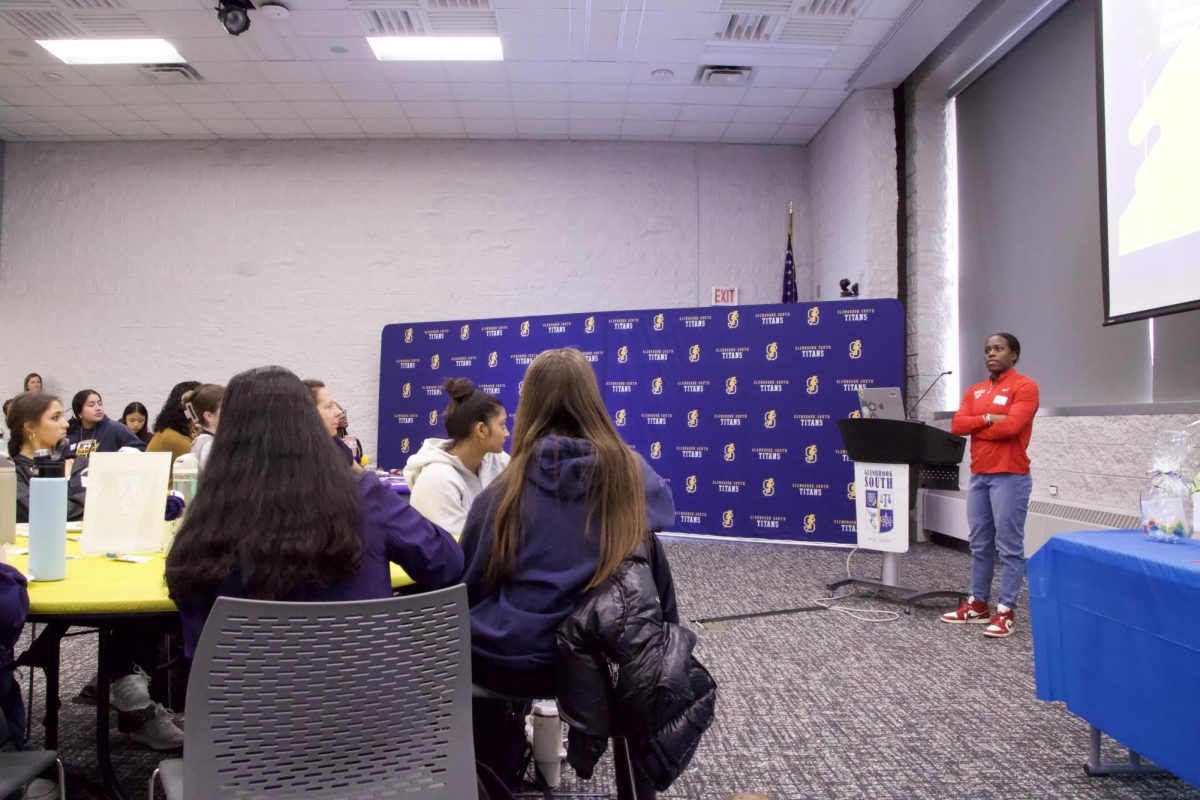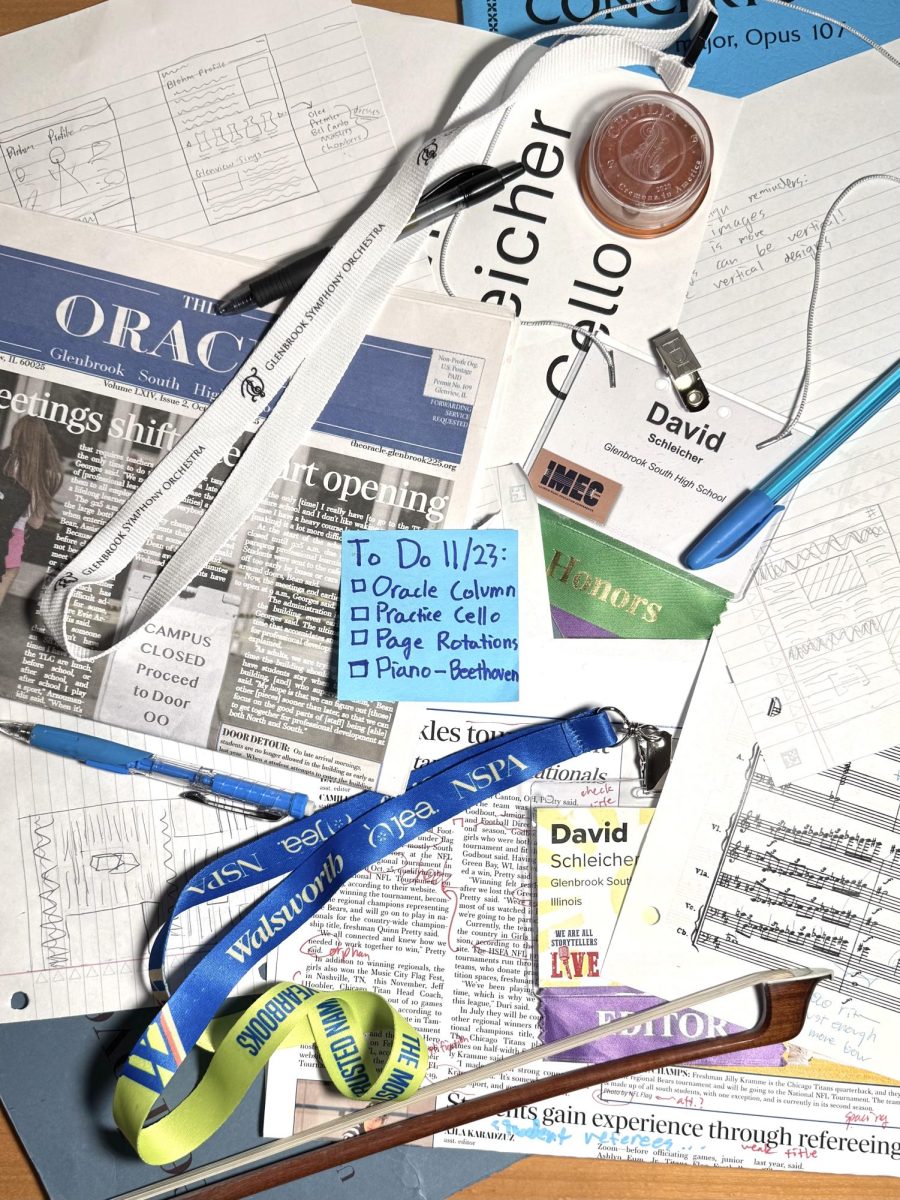It’s eighth period and study hall Room 191 is silent with focused students scribbling away at their homework, but in the corner sophomore Alan Xenos is typing away on the computer. Instead of typing a paper or surfing the Internet, Xenos spends his time completing different projects; this time he is trying to create a tool to make the process of jail breaking on iPhones easier.
According to Xenos, jail breaking opens up an app store called “City” which allows the installment of programs not approved by Apple. Along with jail breaking, Xenos creates and designs applications for Google.
“Anything that the user sees is what I do,” Xenos said.
Xenos started to work with technology when he discovered that he liked doing visual work with computers, but he couldn’t draw.
“I want to draw things, but I want them to look good,” Xenos said. He then started to work with technology and designing applications on the computer.
“Everybody thinks it’s this impossibly hard thing [but] it’s actually really easy once you learn to do it,” Xenos said.
Currently, Xenos works for Andriod , a part of Google. According to Xenos, Google has three divisions: Motorola, Google Desktop, which includes the Google search engine, and Google Mobile Services, which includes Andriod and mobile applications.
Because Xenos is under 16 he cannot legally be put on a payroll for Google, but is put on an independent contractor. According to Xenos, he gets paid 50 to 60 dollars per project on average, but how much he gets paid depends on the project.
Xenos has been to the Google Development Center in Chicago to work on a project with two other people.
“We decided to work together on a project because we had to redesign an entire application,” Xenos said.
They each designed a part of the application, and they got together so they could put the three pieces together. Most of the work Xenos does, such as designing an application, starts on the computer.
“[I] do the work on [my] computer then push it back to the phone,” Xenos said.
When Xenos completes a project, it is pushed into the Testing Pool and is tested by sixty or seventy people. If the majority of the people who test it approve it, then it gets pushed into all phones.
Xenos needs to have to use only for his developement work.
“For that kind of thing there is a website called Rootzwiki, where developers can apply, and each month they pick five people and they hand out free phones, as long as you sign an agreement promising you will bring your development work to that device,” Xenos said.
Xenos not only explores phones and sees how they work, but he also fixes them. When somebody breaks his or her phone, Xenos can typically fix it.
“Usually the first thing somebody will say [when a phone breaks] is take it to [Xenos] and [he] will fix it for you,” Xenos’s friend, sophomore Emily Leonard, said.
According to Xenos, it doesn’t take him very long to fix a phone.
“About half the time I can fix it in a day, the other half of the time it will take two or three, depending on how bad the problem is,” Xenos said.
Xenos can only fix phones that have software related problems. He first has the person describe what is wrong with the phone and tries to fix it from there.
“Eighty percent of the time they give a description accurate enough that I can nail down [the problem] within a certain range [so it’s easy to fix],” Xenos said.
During class one day Xenos was on his laptop while the teacher was working with the projector. As the teacher was connecting her laptop to the projector, Xenos also connected his laptop to the projector and set his priority higher then hers, so he had control of the projector instead of her.
“I didn’t actually do anything to [the teacher’s] computer,” Xenos said. “I just interrupted the connection between her and the projector.”
Xenos was able to have control over the projector for a little while, but he disconnected it so the teacher was back in control.
From designing applications to taking control of projectors, according to Xenos’s friend, sophomore Bri Petty, Xenos can do almost anything with technology. Xenos has some plans for the future too.
“I plan on looking into mobile development,” Xenos said. Mobile development, according to Xenos, is a course that teaches students to create advanced applications for phones. He hopes to work with other devices, not just the android.






